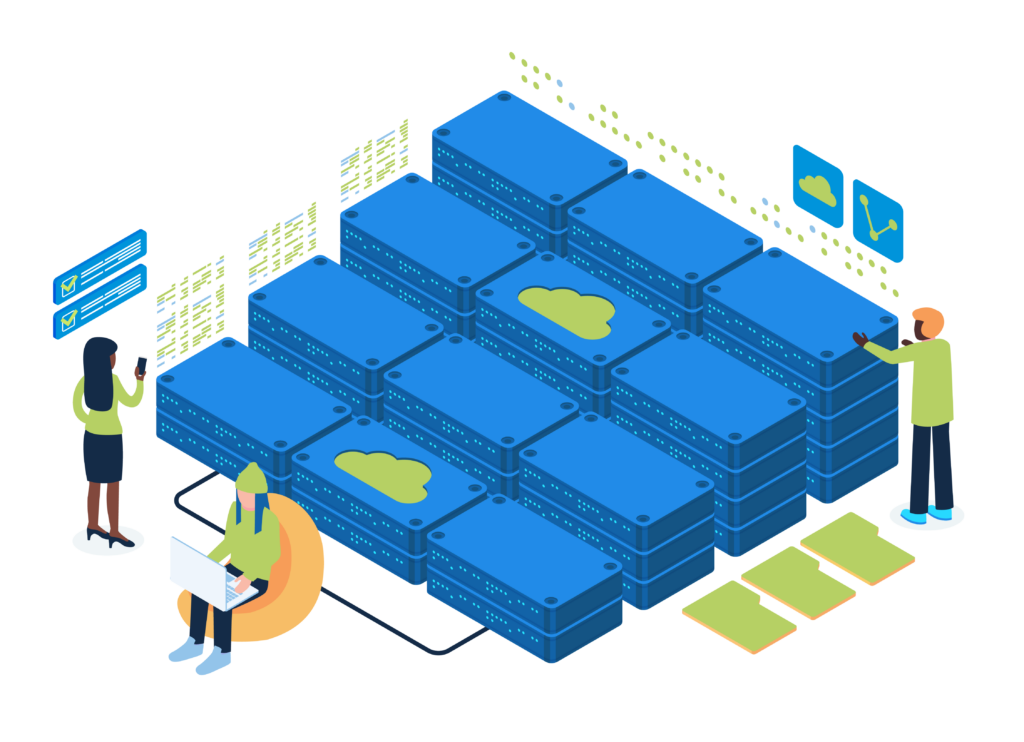What is a Hosting Server?

A hosting server is a powerful computer system designed to store, manage, and deliver website content and applications to users over the internet. It operates continuously, ensuring that the hosted websites and applications are accessible at all times.
Table of Contents
Types of Hosting Servers

- Shared Hosting:
- Multiple websites share the same physical server and its resources.
- Cost-effective but may suffer from performance issues if other sites consume too many resources.
- Virtual Private Server (VPS) Hosting:
- A physical server is divided into virtual servers, each acting as an independent server.
- Offers more control and resources than shared hosting.
- Dedicated Hosting:
- A single server is dedicated to one website or application.
- Provides maximum control, performance, and security but is more expensive.
- Cloud Hosting:
- Utilizes a network of virtual servers to host websites and applications.
- Offers scalability and reliability by distributing resources across multiple servers.
- Managed Hosting:
- The hosting provider handles the setup, management, and maintenance of the server.
- Ideal for users who prefer not to manage server-related tasks themselves.
Components of a Hosting Server
- Hardware: Includes CPU, RAM, storage (HDD or SSD), and network interfaces.
- Operating System: Manages hardware resources and provides a platform for applications to run (e.g., Linux, Windows Server).
- Web Server Software: Manages HTTP requests and serves web content (e.g., Apache, Nginx).
- Database Server: Stores and manages data (e.g., MySQL, PostgreSQL).
- Control Panel: Provides a user-friendly interface to manage the hosting environment (e.g., Plesk, cPanel).
Why Do We Need Hosting Servers?

- Online Presence: A hosting server is essential for making your website or application accessible to users on the internet.
- Performance: Hosting services are optimized to handle multiple simultaneous requests, ensuring fast and reliable access to your content.
- Scalability: As your website or application grows, hosting services allow you to scale resources to handle increased traffic and data.
- Security: Hosting providers offer various security measures, including firewalls, encryption, and regular backups, to protect your data and ensure uptime.
- Technical Support: Professional hosting services often include technical support to assist with server management, troubleshooting, and maintenance.
- Customization and Control: Depending on the type of hosting (shared, VPS, dedicated, cloud), you can have varying levels of control over the server environment, allowing for customization to meet specific needs.
Benefits of Using a Hosting Server

- Reliability: Ensures your website or application is always available to users.
- Speed: Provides faster load times and better performance, improving user experience.
- Cost-Effective: Hosting providers offer various plans to fit different budgets, making it more affordable than setting up your own server infrastructure.
- Maintenance: Hosting providers handle server maintenance, updates, and security, allowing you to focus on your core business.
- Support: Access to professional support teams to resolve technical issues quickly.
In summary, a hosting services is a crucial component for any online presence, providing the infrastructure needed to deliver content and applications reliably and efficiently. It ensures that your digital assets are accessible, secure, and scalable as your needs grow.